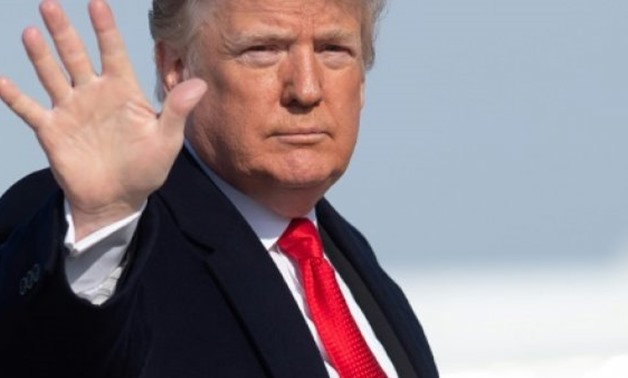
© AFP/File | The fact that President Donald Trump announced the US would withdraw from the Paris climate accord signed by his predecessor, Barack Obama, has not ended American participation in climate talks
WASHINGTON (AFP) - Next week in Poland, a discreet delegation of American diplomats will settle in for two weeks of international climate negotiations along with their European, Chinese and other counterparts they've mixed with for years.
The fact that Donald Trump announced in June 2017 that the US would withdraw from the Paris climate accord signed in 2015 by his predecessor, Barack Obama, has not ended US participation in continuing climate talks.
The US pullout won't take effect until 2020.
In the meantime, the Americans are not leaving their seats empty and remain heavily involved at the technical, rather than political, level.
"Among developed countries, the US is hardly isolated on those issues," said Alden Meyer, director of strategy and policy at the Union of Concerned Scientists, noting that the US has maintained a united front with Europe and other rich nations when it comes to technical subjects that are indispensable to the effective rollout of the Paris deal.
The Conference of Parties number 24 (COP24), is the follow-on to COP 21 in Paris.
This time, 197 signatories are meeting to agree on the rules of applying their commitments under the 2015 pact, making a "rulebook" to follow.
"Paris has to be brought to life in an operational sense," said Todd Stern, who was President Obama's chief climate negotiator. One page on transparency might need 15 or 20 pages of technical definitions, he said.
For example, countries must agree on a common method of counting emissions so that progress can be compared equally.
Should they use international guidelines from 2006, and allow flexibility to some countries? If so, which ones? Who will review nations' progress? On the ground, or from the secretariat in Bonn?
And when? And what should be done if a country does not stand by its pledge?
On these subjects, the Americans have some very precise goals.
They are refusing to allow any developed country to be subject to stricter rules than a developing country -- the same position that has been held by the prior administrations of George W. Bush, Barack Obama and the present one of Donald Trump.
- After Trump -
Why are other countries cooperating with the United States?
Because they are laying the groundwork for a possible future US tie-in to the Paris accord.
Everyone knows that Washington's pullout formally takes place November 4, 2020, the day after the next US presidential election.
It's still even possible that Trump could decide to stay in the accord.
"Most countries I talked to have tried to separate the Trump administration from the US long term," said Meyer.
"They want to maintain the ability for the US to either stay in Paris if President Trump can be convinced to change his mind or to re-enter Paris after President Trump leaves office," he said.
"There is some sympathy for some of the US positions in the negotiations because other countries don't want to make it more difficult for a future president to come back in."
According to Ovais Sarmad, deputy executive secretary at the UNFCCC, which oversees the talks, 183 other countries ratified the Paris accord.
"We hope that that position (of the US) will change over time," said Sarmad.
The US delegation will not be led by a high-ranking official, but rather a career diplomat, Judith Garber, who is not widely known in the larger public.
Garber is principal deputy assistant secretary in the Bureau of Oceans and International Environmental and Scientific Affairs.
"The team that represents the United States is made up of career diplomats, you have negotiated these issues for many years, and have earned considerable credibility and trust among their colleagues from other countries," said Elliot Diringer, executive vice president of the think-tank C2ES in Washington.
Proof of Washington's weight: the US blocked talks in Bangkok in September on the question of green financing that developed countries are meant to free up to help poorer nations make a transition to greener energy, observers said.
Alongside the technical negotiators, a more political delegation arrives the second week, with a representative from the White House, Wells Griffith, according to Meyer.
As soon as he arrives, the energy advisor to Donald Trump will preside over an event to promote fossil fuel and carbon.
A provocation for some, to be sure, but not one that is off-putting enough to derail the negotiations which are taking place in private.
"The Americans are continuing to negotiate in a constructive manner," said a source close to the talks.
"Of course, we have to put up with the fact that they are coming in support of coal, but in the meantime, we can work quietly."


Comments
Leave a Comment